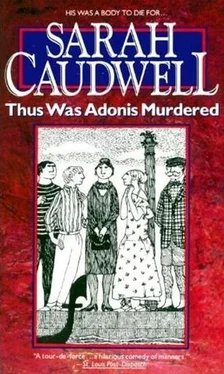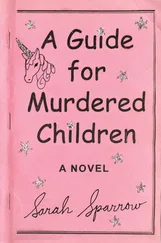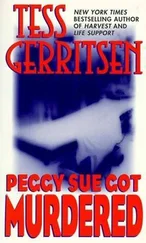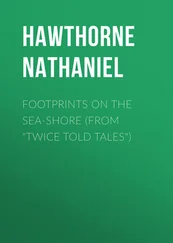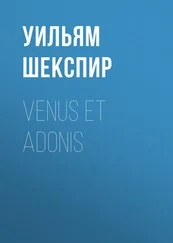“Are we,” asked Ragwort, “going to do anything, in particular?”
“We’re meeting in Guido’s, as arranged. Cantrip will be keeping an eye on the teleprinter, of course, and if any more news comes through before ten o’clock he’ll tell us about it.”
It is difficult, on such an occasion as I have described, to know on precisely what note to resume the conversation. We were silent for several moments.
“Dear me,” said Selena eventually. “What a very good thing, after all, Timothy, that you are going to Venice tomorrow.”
Guido’s is not the nearest restaurant to the Corkscrew, nor the most economical in that vicinity. The superiority of its menu, however, is sufficient compensation for the short walk down Holborn Kingsway and round the back of the Aldwych Theatre; and Timothy was paying the bill.
It was not yet nine o’clock: we could not expect Cantrip for at least an hour. I proposed that in the meantime, and while eating our asparagus, we should proceed, as previously intended, with the reading of Julia’s letters. Though they might throw no direct light on the stabbing incident, it would, I suggested, be useful for Timothy, before plunging in medias res on Julia’s behalf, to be as well-in-formed as possible of the antecedent events.
The first began ominously.
Hotel Cytherea, Venice.
Late on Thursday night.
Dearest Selena,
I have news of a most shocking nature to impart to you. You will scarcely believe it. If anyone else had told me, I should not have believed it myself. “No, no,” I should have cried, “it is not possible. The monstrous cannot disguise itself in an angelic mask. Reason and nature prohibit it. The deformity of the mind would necessarily distort the perfection of the profile. The depravity of the soul would infect with some hideous blemish the smoothness of the complexion. No, it cannot be.”
“I suppose she’s referring,” said Timothy, “to the young man she admired so much on the aeroplane. But this is evidently written only a few hours later — what can have happened in the meantime that Julia finds so shocking? She is, after all, a tolerant woman.”
“To a fault,” said Selena.
But it is no use writing to you in this haphazard incoherent fashion, beginning at the end and ending God knows where. I will proceed clearly and chronologically, beginning at the beginning.
The beginning was not altogether auspicious, owing to my separation from my passport. We were fortunately met at the airport by our courier, a haggard, aquiline, fragile-nosed Venetian lady, who told us that her name was Graziella. It took Graziella a mere ten minutes to understand my difficulty, explain it to the Customs officer and secure my lawful entry to Italian soil. In the meantime, however, the other Art Lovers were obliged to wait for us in the motorboat which was to transport us across the lagoon to Venice. By the time we joined them, there were signs of restiveness.
The armour-plated matron, in particular, who was sitting next to the beautiful young man, made some rather wounding remarks about total imbeciles with no consideration for other people. She may not, perhaps, have intended me to hear them; but she much underestimates, in that case, the carrying power of her voice.
So fearful was I of incurring yet further disapproval, so intent on the composition of some soothing apology, that while getting into the boat I somehow missed my footing. My entry into the vessel was accordingly at an angle rather obtuse than perpendicular to the quayside and at a speed rather rapid than graceful. In short, I fell in head first.
This caused the armour-plated matron to make certain further comments reflecting on my sobriety. Still more regrettably, it enabled the Major, on the pretext of breaking my fall, to gather me in a tenacious embrace, uttering as he did so loud cries of “Whoops-a-daisy.”
By a further stroke of misfortune, my handbag, in consequence of my over-rapid descent, had become unfastened and its contents had dispersed themselves about the floor of the boat. Anxious to be as little obliged as possible to the Major for the assistance which he offered in their recovery, I set about collecting them with, as I now realize, imprudent haste and insufficient thought for the effect on my balance of an attitude of semi-genuflection. Impatient, no doubt, of further delay, the boatman now cast off. The sudden movement threw me against the side of the vessel, and brought the wooden bench, fitted thereto for the repose and comfort of passengers, into collision with my nose. My nose began to bleed.
I was thus compelled, after all, to be obliged to the Major, videlicet for the loan of his handkerchief. He took the occasion to pat me here and there, and seemed inclined to offer me his shoulder to bleed on. I explained to him that it was essential, when suffering from a nosebleed, to lean backwards rather than forwards, and that if he did not object to my first soaking his handkerchief in the lagoon the bleeding would stop very shortly. “Attagirl,” said the Major, patting me again and adding that he liked a woman with pluck.
I considered the advantages of bursting into tears: not only would it have relieved my feelings but also, apparently, discouraged the Major’s admiration. Looking about me, however, I felt that I would not have a sympathetic audience. It seemed possible, moreover, that the Major would change his mind and discover a preference for the weeping and womanly. I judged it better to keep a firm hold on the remnants of my sangfroid. Settling myself as far as possible from my fellow passengers, I leant back with my eyes closed and the Major’s sea-soaked handkerchief pressed firmly against my nose.
I could not feel I had made a favourable impression.
“Julia did very well,” said Selena, “not to fall into the lagoon. How beastly of that woman to suggest she’d had too much to drink.”
“Most uncharitable,” said Ragwort. “Julia, as we all know, needs no assistance from alcohol to make her trip over things.”
Graziella, as we crossed the lagoon, gave a most instructive account of the history of Venice from its foundation in the fifth century to the defeat of the Frankish Invasion in the ninth. I was not, however, in any condition to attend to it as I should have done, or to observe the many features of artistic and historical interest which she pointed out to us. When at length I thought it prudent to remove my nose from the handkerchief, the crossing was almost completed. I looked up and saw Venice, floating on the water.
Venice, as one sees from the map in Ragwort’s Guide, consists essentially of three large islands, though subdivided by canals into a great many smaller ones. Two of the three lie curled together, divided only by the Grand Canal, in an embrace of such Gallic sophistication as to prevent my pursuing further the anatomical analogy. To their left, excluded from their intimacy, the long thin island of Giudecca stretches out alone, a parable in geography of the hazards of a partie a trois. For consolation, like a divine hot-water bottle, it has at its foot the little island of San Giorgio Maggiore.
The church of San Giorgio, therefore, and a little afterwards that of the Salute, rising on the left at the entrance to the Grand Canal, are the first of the great religious buildings of Venice to offer themselves to the admiration of the tourist. That they are to the honour of exclusively Christian deities seems by no means certain: there is a too Eastern voluptuousness in their swelling domes, a too Athenian elegance in their Palladian facades. They seem designed for travellers who would wish, on setting forth, to murmur a prayer to Allah as well as to Saint George; or who, giving thanks for a safe home-coming on the wide steps of the Salute, would include a word or two to the goddess Aphrodite.
Читать дальше
